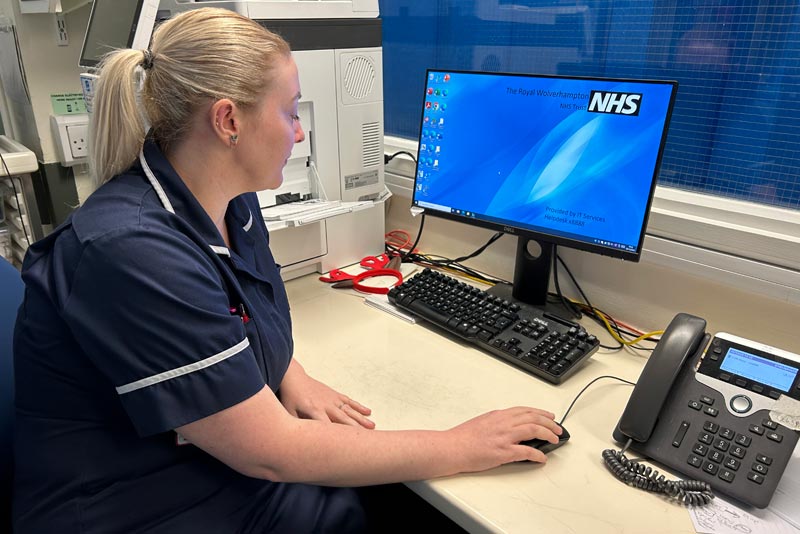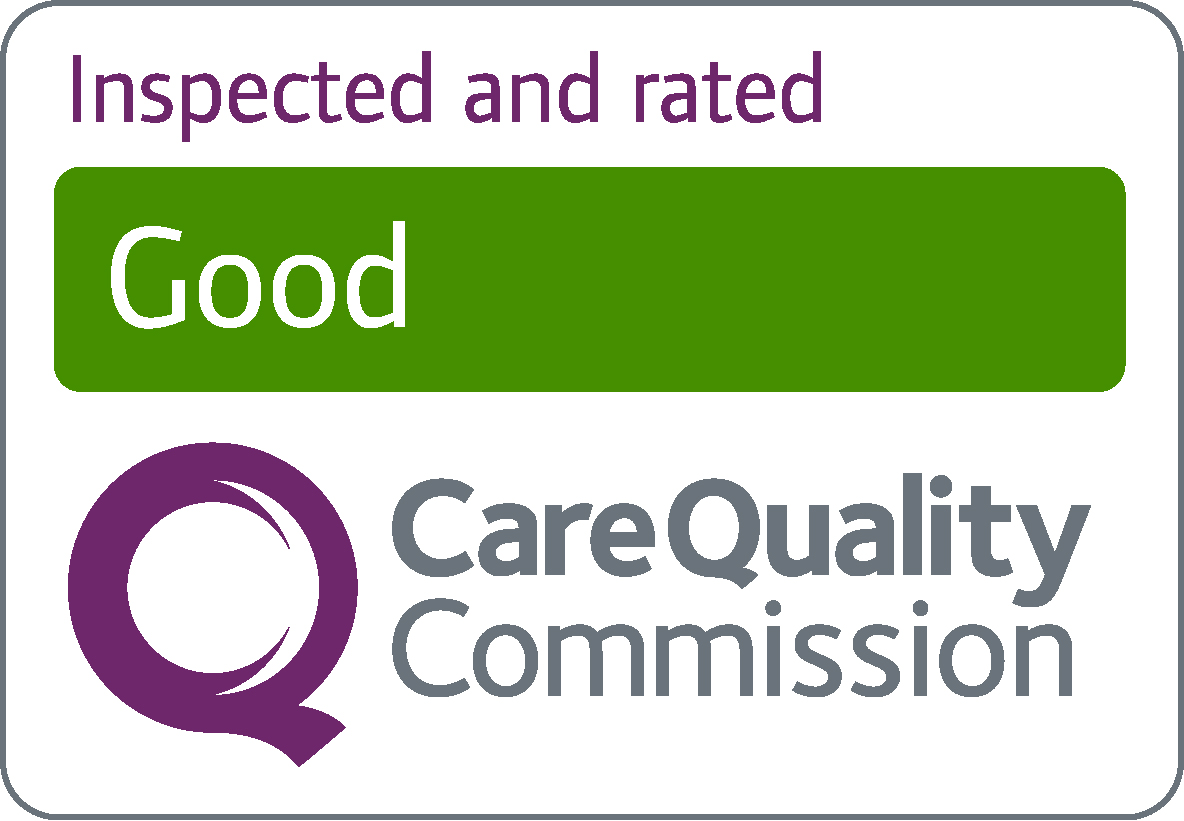Digital patient records to replace paper ones
Date of release: 2 February 2024
An exciting development in Wolverhampton healthcare will mean patients’ paper records are replaced by digital ones in 2024.

Staff will access EPR from their computer or laptops. Mykala Jackson, Senior Sister, based in Renal Services, demonstrates
The Royal Wolverhampton NHS Trust (RWT) signed a 10-year contract with UK healthcare technology company System C, which will supply a new electronic patient record (EPR) system throughout 2024.
This will completely modernise how the Trust manages patient notes, changing how RWT delivers test results and electronic prescribing, including medicines administration.
Nick Bruce, Group Director of Digital Technology at RWT, said: “Currently, our clinical and non-clinical staff use over 300 different digital systems to help provide patient care.
“Departments like Emergency, Theatres, Inpatient Services, and Community Services all use separate systems, meaning staff must remember multiple login details and
passwords.
“The reliance on paper-based records in many areas of the Trust is losing valuable time to document scanning and increases the risk of important patient information going missing.
“A single EPR will unify our existing digital systems in one place, as if the Trust has one digital brain.
“Every patient who uses our services will have a single, accurate, and up-to-date health record and no longer need to repeat information when seeing multiple clinicians.”
Each patient record will be easily accessible by clinicians across the Trust, helping them make effective and timely decisions on care.
EPR will also allow for greater collaboration between different departments, leading to more effective care outcomes.
For non-clinical staff, EPR will help speed up every-day administrative tasks, making patient data understandable and easier to manage.
This will support the flow of patients throughout the Trust, allowing staff to schedule appointments, operations, and community visits more effectively.
As we get further into the new year, staff across the organisation can expect regular communications about this EPR journey.
There will be opportunities to get involved with the programme, training opportunities on the new system, and information on significant milestones that require all staff support.
Patients don’t need to do anything but can find information about how the Trust uses its data for the provision of direct care, and the measures RWT has to keep it safe, on the website.
ENDS
- For further information, please email amy.downward@nhs.net

